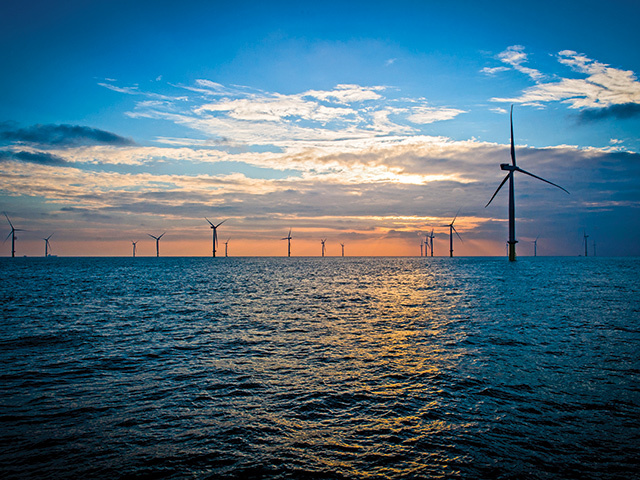
The UK’s offshore wind industry risks facing the ‘worst of all worlds’ scenario with high cost and low volume, a report from a leading thinktank has warned.
The Institute for Public Policy Research has warned that the UK is set to miss out on as as many as 15,000 energy industry jobs because of the failure of the Government to capitalise on offshore wind.
The report, which was published today, comes just days after the world’s largest offshore windfarm was officially opened in the Thames Estuary by Prime Minister David Cameron.
Conditions around the UK are seen as ideal for offshore windfarms, with shallow seas and strong wind conditions, but the Government’s objection to EU goals on renewable energy and targets for decarbonising power is seen as a stumbling block to encouraging investment in the sector.
“The UK’s current policy trajectory could see it achieving a ‘worst of all worlds’ outcome: low volume, low jobs, and high costs,” warned the IPPR’s Will Straw.
“This would fail our climate challenge, our jobs challenge, and our rebalancing challenge. Unless Britain ‘pumps up the volume’ there is little prospect of either bringing down the costs of offshore wind or creating domestic jobs.
“An alternative pathway is possible, if the government can bring together an industrial strategy for the sector predicated on a combination of ‘carrots and sticks’. The industry should be given the long-term clarity that it needs, and which has been provided in other countries.”
Targets for wind power generation have come down drastically since the target of 18GW by 2020 that was set by the Government in 2011, with latest projections of just 11.5GW by 2020, and a further ten years before levels approach the earlier target.
The IPPR report calls for the the Government to attract at least two turbine manufacturers to set up in the UK, and back British firms with exports to build up their expertise. It also calls for greater support for the existing renewables firms to capitalise on existing knowledge in the the onshore wind and North Sea oil and gas industries.
“A 2030 target for the carbon intensity or share of renewables in the power sector is a necessary condition as are long-term 20 year contracts,” said Straw.
“But developers must be expected to drive down costs with a subsidy regime that reduces the strike price over time. Developers and suppliers should do more to provide apprenticeships and sponsor university and FE courses”.
Recommended for you
